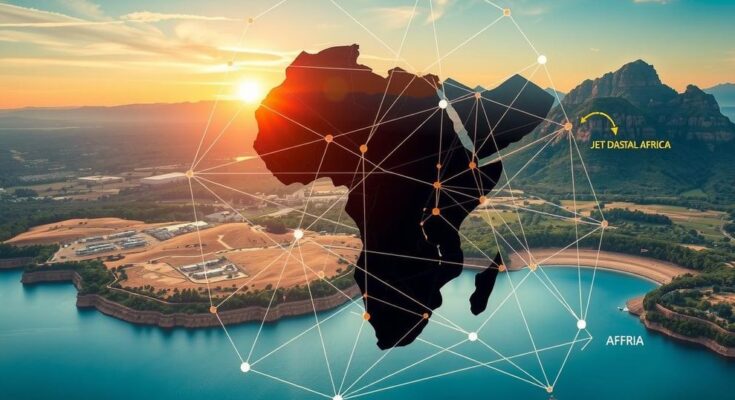Rwanda’s M23 rebel group has seized Goma, leading to violence and mass displacement, similar to Russia’s actions in Ukraine. Kagame’s regime employs the M23 as a proxy for territorial expansion under the guise of protecting Tutsis. The international response is critical to preventing further aggression and instability in the region.
Rwanda’s recent actions in Congo, particularly the seizure of Goma by the M23 rebel group, bear striking similarities to Russia’s tactics in the Ukraine conflict. Since January 27th, the M23 has gained control over Goma, leading to the death of UN peacekeepers and displacing hundreds of thousands of civilians. Understanding M23’s role requires a comparison to the Donbas, where Vladimir Putin’s concealed support for separatists underlined his claims of protecting ethnic Russians.
Rwanda’s President Paul Kagame has mirrored Putin’s approach in Congo, utilizing the M23 rebels to further Rwanda’s interests while claiming they are protecting Congolese Tutsis. This assertion is arguably exaggerated and serves as a guise for territorial expansion. Rwandan military assistance has become evident, although the Rwandan government denies any direct involvement. This situation contributes to the ongoing humanitarian crisis in Congo, where armed groups commit acts of violence without repercussion.
The geopolitical context reveals Rwanda’s repeated aggression toward Congo, with the M23 having previously captured Goma in 2012. After international pressure and UN intervention quelled the uprising then, the present scenario depicts a weakened UN and distracted global powers. Rwanda enjoys novel support from states such as China and Qatar, and the shift in American diplomacy under President Biden has not decisively constrained Kagame’s ambitions.
Rwanda’s aggressive behavior raises alarms about a deteriorating global order, where the principle of territorial integrity is increasingly challenged. The implications of allowing such actions could prompt broader acceptance of imperialism by other global powers. The situation demands a concerted response from international donors and neighboring African states, as Rwanda’s militaristic endeavors pose severe risks to regional stability.
To prevent further territorial violations, international donors should impose stricter conditions on aid to Rwanda and engage more actively in diplomatic discussions. This analytical lens is critical in confronting the dangerous precedent set by Kagame’s maneuvers in Congo. Inaction could pave the way for more aggressive territorial claims and exacerbate the prevailing chaos.
The situation in eastern Congo is complicated by a history of conflict involving numerous armed groups, among which M23 has emerged as a significant player after initially seizing Goma in 2012. Rwanda’s involvement has often gone unnoticed outside Africa, yet it reflects a broader trend of territorial aggression seen globally. The international community’s response to these crises has shifted, particularly with recent events highlighting a tenuous balance in global power dynamics. The comparison between Rwanda and other nations, such as Russia, underscores the potential dangers of dismissal or underestimating regional conflicts that can spiral into broader acts of aggression. Observers note that the weakened stance of UN peacekeeping efforts, coupled with internal turmoil in Congo, creates a fertile ground for foreign interference and power struggles over natural resources, deeply impacting civilian safety and stability.
In conclusion, Rwanda’s aggressive approach in Congo, epitomized by the actions of the M23 rebels, reflects a disturbing trend reminiscent of the geopolitical maneuvers observed in Ukraine by Russia. The international community must recognize and respond to these threats to prevent further territorial incursions and ensure regional stability. Urgent and coordinated action from external powers is necessary to hold aggressive leaders accountable, safeguard vulnerable populations, and uphold the principles of national sovereignty and territorial integrity.
Original Source: www.hindustantimes.com




